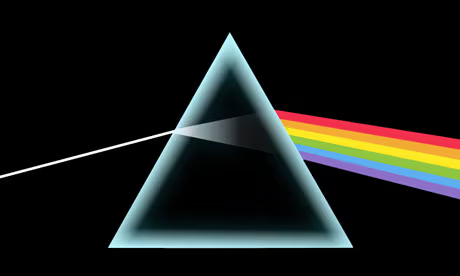Song Stories: Pink Floyd: Time
In 1973 Pink Floyd released one of the most important and influential albums ever. 'The Dark Side of the Moon'. On an album filled with classic songs, 'Tome' stands out as being one of the most profound, and powerful. Written by Roger Waters and David Gilmour, it captures the existential anxiety of realizing that life is slipping away faster than we ever imagined.
From the very first second, "Time" envelops listeners with its iconic introduction: a cacophony of chiming clocks, ringing alarms, and ticking. This sound collage was created by engineer Alan Parsons, who recorded each clock individually in an antique shop, later layering them to evoke the overwhelming sense of time marching on. The way the clocks burst out of the silence feels like a sudden awakening, a harsh reminder that the present moment is fleeting.
The song is meant to give the listener this awakening and it is done throughout. Nick Mason's drumming mimicking the mechanical ticking of a clock. Rick Wright’s keyboards swell, creating a sense of vastness that reflects the passage of years. Gilmour’s guitar riffs, powerful yet melancholic, echo like the thoughts of someone looking back on lost time, each note filled with a mixture of regret and realization.

Waters captures the universal fear that we’re all moving too fast to truly live in the moment. The lyrics "And then one day you find, ten years have got behind you / No one told you when to run, you missed the starting gun. It's a hard hitting song that reminds us that time waits for no one, and just how much of life has been and gone.
In the first verse, Gilmour’s voice feels almost detached, as if he’s singing from the perspective of someone who has been drifting through life, waiting for the right moment to start living but finding that it’s already too late. The monotony of time is expressed through the repetitive structure of the song, the chorus reeling you in with the harsh truth that the hours, days, and years slip away unnoticed.
But the second verse pivots toward hope. "The time is gone, the song is over, thought I'd something more to say" is a resignation to the inevitability of time’s passage, but it’s followed by a shift in energy. It’s as if the song itself is urging the listener to seize what time they have left. Embrace it rather than look back on what has been and passed.
Over the decades, "Time" has resonated with listeners of all ages, remaining as relevant now as it was in 1973. It speaks to a universal truth that transcends generations: time is the one thing we can never get back. Whether you’re 18 or 80, the song's message of reflection and urgency strikes a deep chord.
In the end, "Time" is a reminder that life is fleeting, but also precious. As the song fades out into the distance, we’re left with a haunting yet hopeful feeling—the realization that while we can’t stop time, we can choose how we spend it.
Thank you for reading x